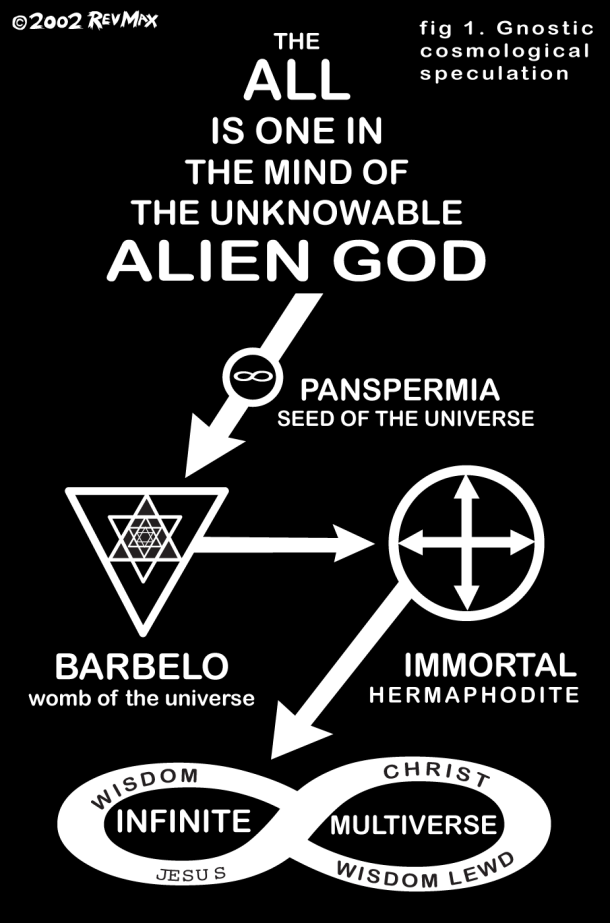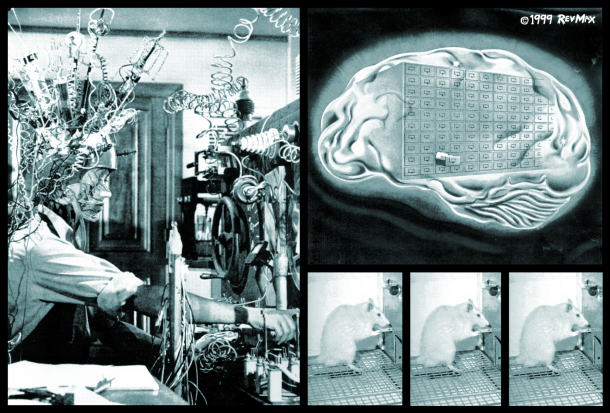THE NON-EXISTENT GOD
The main difference between the “Alien god” of gnosticism and the Biblical god of Genesis is the idea that the Alien god never created anything, much less the world; the Alien God simply is.
Or is not – for in the same way that certain schools of Judaism refuse to assert that God exists at all (for to make such a claim is to project human qualities onto the divine), the gnostics too sometimes claimed that their god, too, was non-existent.
This non-existent god, then, who never created anything, was something of a dreamer, or even a day-dreamer; in line with this notion, second Century gnostic teacher Basilides of Alexandria tells us that the non-existent god’s first act was to imagine, not a universe, but a potential universe, a pre-universe or “seed” which existed only in his own mind:
“Since, then, there was nothing – no matter… nothing simple, nothing complex.. no man, no angel, no god, not anything that is named or perceived…the nonexistent God wished, without intelligence, without sense, without will… to make… the seed of the universe.
The seed of the universe contained everything within it… Everything… of which one can speak, and even of which one cannot speak because it does not exist; everything which was necessarily going to adapt itself to the universe which was to come… all these beings existed, deposited in the seed.”1
THE ULTIMATE ENSEMBLE
The idea of a universal seed containing an infinite number of potential creations recalls the “ultimate ensemble” theory advanced by University of Pennsylvania physicist Max Tegmark.
In Tegmark’s view, every type of “logically possible” universe must exist on some parallel plane or another – and instead of just one “Big Bang,” we can posit an infinite number of them.
Some big bangs produced universes populated by telepathic fungii while others produced universes built entirely out of prime numbers; there exist countless other we couldn’t even imagine if we tried.
Not all of these universes are life-friendly, however; only some are stable and complex enough to support what Tegmark calls “Self-Aware Substructures,” or living beings:
“Although every mathematical structure exists and has physical existence [as an actual universe], only some are perceived to have physical existence… For instance, a universe consisting of Euclidean geometry exists but its equations are nowhere near rich enough in possibilities to evolve observers.”2
In other words, every single type of possible universe really does exist, but since most of these are too simple and unstable to support life, they can never be measured, observed or perceived in any way. For all practical purposes, these “dead” universes are invisible, untouchable and forever off-limits to anyone, human or alien.
If a Big Bang occurs but nobody ever hears it, does it still make a sound?


